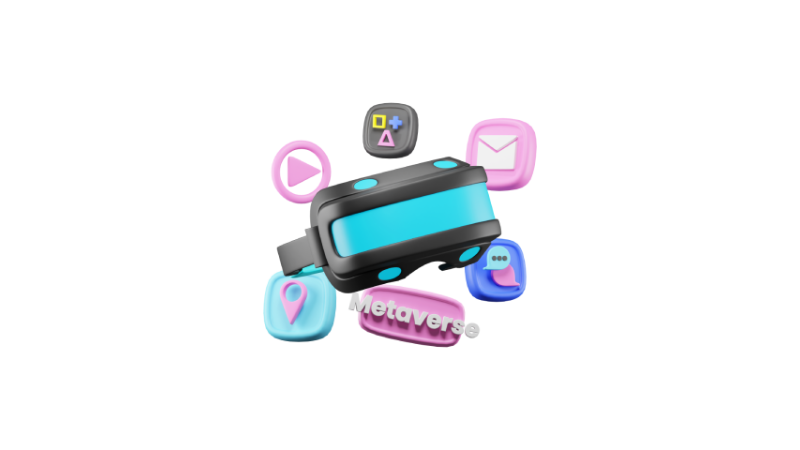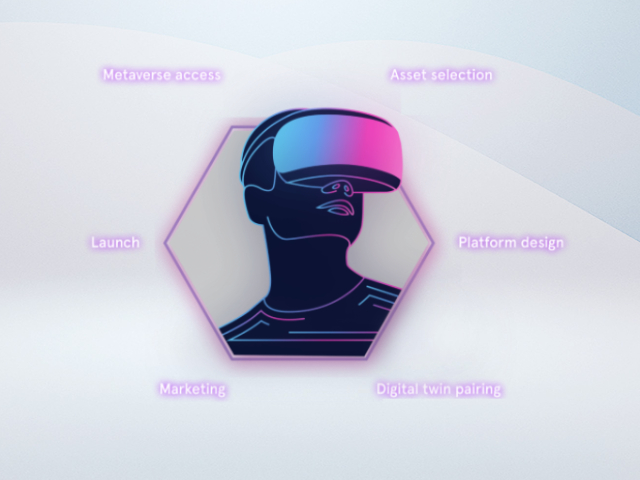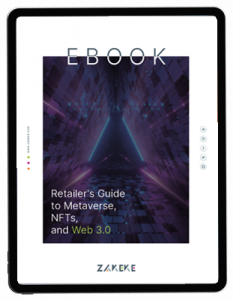The digital world presents a unique challenge for artists, creators, and brands. It is seen in terms of securing intellectual property rights and receiving fair compensation for their work. Non-Fungible Tokens (NFTs) have emerged as a promising solution to this problem. Thus, it’s gaining popularity and transforming the digital assets landscape.
It has captured the attention of not just artists and collectors but also marketers by storm. They recognize their potential to revolutionize marketing strategies and enhance brand engagement.
It offers a fresh way to authenticate, buy, and sell digital works. This article will delve into the world of NFTs marketing strategies. Examine their rapid rise to prominence and explore their significance in crafting cutting-edge marketing campaigns.
Understanding the NFT market
The non-fungible token market has experienced significant growth in recent years. This is evidenced by the NFT market saw 6.1 million trades of 4.7 million NFTs in 160 platforms. In addition, a Statista report noted the NFT market first gained widespread attention in March 2021. It is when the Beeple artwork “First 5000 Days” sold for $69 million at a Christie’s auction.
However, despite the market’s rapid growth, the daily market size of NFTs on Ethereum was much lower by late 2022 than it was in 2021. Forbes proposes that NFTs could be the future of eCommerce, as they could support a more equitable profit-sharing system and enable emerging brands to establish themselves in the market.
On the other hand, The Harvard Business Review notes NFTs, initially dismissed as a passing craze, have seen over $10 billion traded in the third quarter of 2021 alone. This indicates the technology is here to stay as its convergences with eCommerce and Metaverse.
Ultimately, the NFT market has seen significant growth. Millions of trades occur on numerous platforms. Even though the daily market size of NFTs has decreased in recent times, the potential for NFTs to revolutionize eCommerce remains high, as they’re expected to attain a $60 billion market value by 2031.

Benefits of NFT marketing strategies for Merchants and eCommerce
NFTs offer merchants a number of benefits. They can showcase unique products and services that would be challenging or impossible for traditional retailers to sell.
It’s because they’re not available in large quantities or are too expensive for most consumers. So, why should merchants have an NFT marketing strategy?
- Increased brand exposure and visibility
NFTs can be used to create a unique brand identity. For instance, the NBA 2K League uses its NFTs to create an experience that goes beyond playing the game. They have a digital collectible card game (CCG) where players use their favorite basketball players as cards to compete against others. It gives them an advantage over other esports leagues because they bring in new audiences.
In addition, NFTs allow merchants who sell products online to access new markets. You can open up your platform globally without having any restrictions on location or currency exchange rates.
- Opportunity to connect with a younger, Tech-Savvy audience
This is vital for brands that want to reach out to Gen Z and Millennials. A survey by Statista in 2021 shows Millennials were the most likely to collect non-fungible tokens (23% collect NFTs as a hobby).
Meanwhile, only 2% of Baby Boomers collect NFTs, and about 4% of Gen Zers collect NFTs. Therefore, it shows Gen Z and Millennials are actively buying NFTs.
- Ability to showcase unique products and services
NFTs are outstanding ways for merchants to showcase their unique products and services. For instance, if you’re selling digital or crypto art on the blockchain, it’s possible to create an NFT representing one piece of art. This allows customers to purchase access rights to view the piece online or in person at your gallery — and lend it out for others’ use.
In addition, NFTs allow merchants to differentiate themselves from competitors. If you sell handbags online with similar competitors but charge less than yours do. Then using non-fungible tokens might be helpful in distinguishing yourself from them.
- Potential for increased revenue and profits
NFTs provide merchants with an opportunity to generate additional revenue streams. They sell unique, limited-edition digital assets. These assets can command high prices due to their rarity and the demand for exclusive content.
Using NFTs in marketing strategies
NFTs and business – what is their potential? How do you start using an NFT marketing strategy?
- Identifying target audiences for NFT marketing
Research and analyze data to understand the demographics, interests, and behaviors of potential customers. It’s vital so you can create NFTs appealing to them.
- Creating unique and compelling NFT branding aligning messaging
This can involve developing a creative concept and designing NFTs to be unique and visually appealing. They should tell a story resonating with the target audience and reinforces the brand’s message.
- Leveraging social media and influencer partnerships to promote NFTs
They are essential to promoting NFTs. Identifying the right influencers with the relevant audiences and creating NFT promotional campaigns to promote the products or services in exchange for compensation.
- Hosting NFT auctions and sales on popular marketplaces
Hosting NFT auctions and sales on popular marketplaces is crucial to reach a wider audience. Here, research popular marketplaces and understand the rules and regulations. This will create a sense of exclusivity and urgency that will encourage people to bid on or purchase the NFTs.
Best NFT use cases for your marketing strategy
You know staying ahead of the curve is vital in the digital landscape. So, consider these best NFT use cases for your NFT marketing strategy:
1. Digital collectibles
NFTs unlock the power of digital cryptographic collectibles. It allows brands to create unique, rare, and visually appealing assets that can be bought, sold, and traded by their fans. These digital collectibles not only drive engagement but also foster a sense of exclusivity and community among your audience.
2. Brand Awareness
NFTs can also be used to generate brand awareness through innovative marketing campaigns. By offering NFTs as rewards or prizes, brands can create a buzz around their products and services. This encourages engagement and drives traffic to their online platforms.
3. Limited edition collections
One of the key features of NFTs is their ability to create scarcity, making them highly desirable among collectors. Through this, brands can capitalize on this scarcity to drive demand for their products and services.
For instance, consider a luxury car manufacturer releasing a series of NFTs featuring their most iconic models. As its tokenization is limited, collectors would be eager to secure these exclusive assets.
4. Gamification and rewards
This rewards users for engaging with the brand or reaching specific milestones. By creating gaming NFTs, companies can encourage users to spend more time with their content. This fosters brand loyalty and drives repeat visits.
For example, a beverage brand could develop an NFT-based game where users collect tokens to unlock exclusive recipes, rewards, or discounts.














